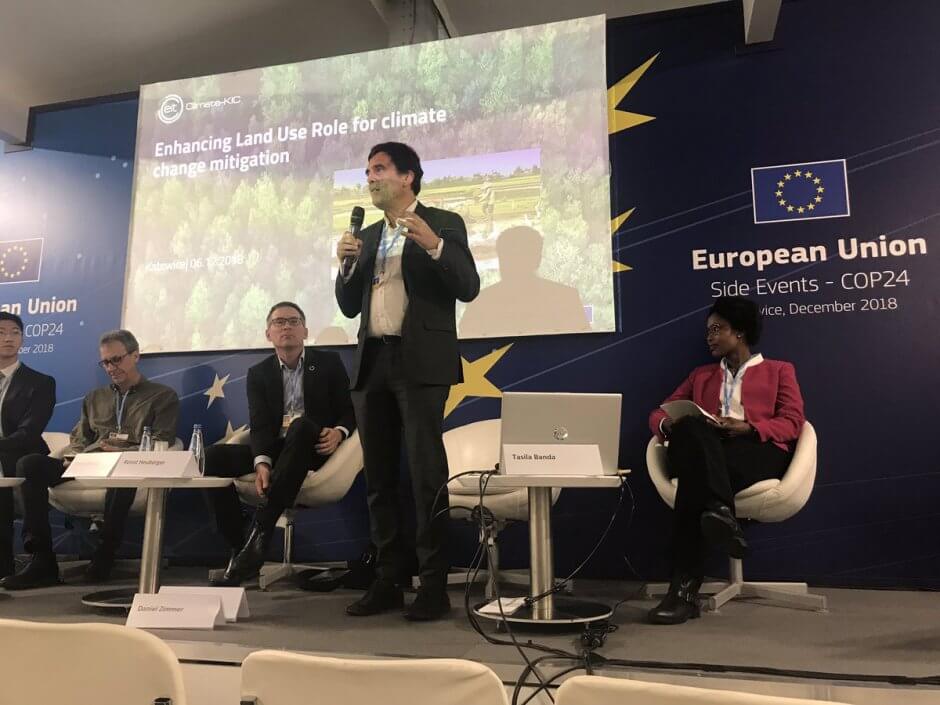COP24 report: The vital role of land use in climate mitigation

With the carbon costs of travel in mind, key EIT Climate-KIC COP24 session summaries are available online for those who cannot attend—and for review for those present. These summaries aim to extract important debates, dialogues, and learnings from each session.
On 6 December, EIT Climate-KIC hosted a panel discussion at COP24 ‘Enhancing the role of land use for climate change mitigation’, led by Daniel Zimmer, Director of Sustainable Land Use.
The event at the annual international climate negotiation event, this year held in Katowice, Poland, explored the successes, needs and challenges facing land use so it can play its full role in reducing emissions and providing a service as a greenhouse gas sequester. Panellists discussed new initiatives on measurement, reporting and verification (MRV) and the carbon economy that can support the implementation of land use solutions.
Evidencing EIT Climate-KIC’s role as the coordinator of a large portfolio of innovative land use actions and an associated expert network spanning climate-smart agriculture, food, forestry and integrated land use, a majority of the 10 panellists represented EIT Climate-KIC project partners.

Andrew Wu from The World Resources Institute (WRI) and James Lloyd from The Nature Conservancy emphasised that land use and nature-based solutions represent 37 per cent of global climate mitigation needs, but only a tiny fraction of that is currently utilised. However, with most countries (especially developing ones) having land use as a key part of their Nationally Determined Contributions (NDCs) to the Paris Agreement, the momentum is progressively growing.
Land use attracts less finance than other sectors. Return on investment is easier and higher in the energy sector which partly explains the situation and the lack of finance available for nature-based mitigation efforts.
The complexity of land use issues was mentioned by panellists as a key challenge; for instance, land-based results strongly depend on the local context, hence replication of solutions is not easy. Landscape approaches provide good examples of potentially impactful and systemic solutions to climate change.
Discussing the carbon economy aspects, new initiatives were presented by IDELE’s Jean Baptiste Dollé, representing the French Livestock Institute and others. A new low carbon standard has been recently adopted in France which should unlock the potential of carbon credits in land use sectors. Some concrete examples were presented for the livestock sector with the potential to fund climate-smart agriculture projects that can reduce livestock emissions by 15 to 20 per cent.
Other panellists included representatives of CIRAD; the Ministry of National Development Planning, Zambia; SouthPole Group; I4CE; the Gold Standard Foundation and Quantis.
In general, the panel agreed the role of the private sector (especially companies involved in agri-food chains) is crucial for the transformation of land use practices through a host of off-setting and other mechanisms.
Finally, the rules for the implementation of the Paris Agreement (especially Article 6) agreed at COP24 will play an important role in the future of the carbon economy for land use action.
News published on Climate KIC
Consult the source



